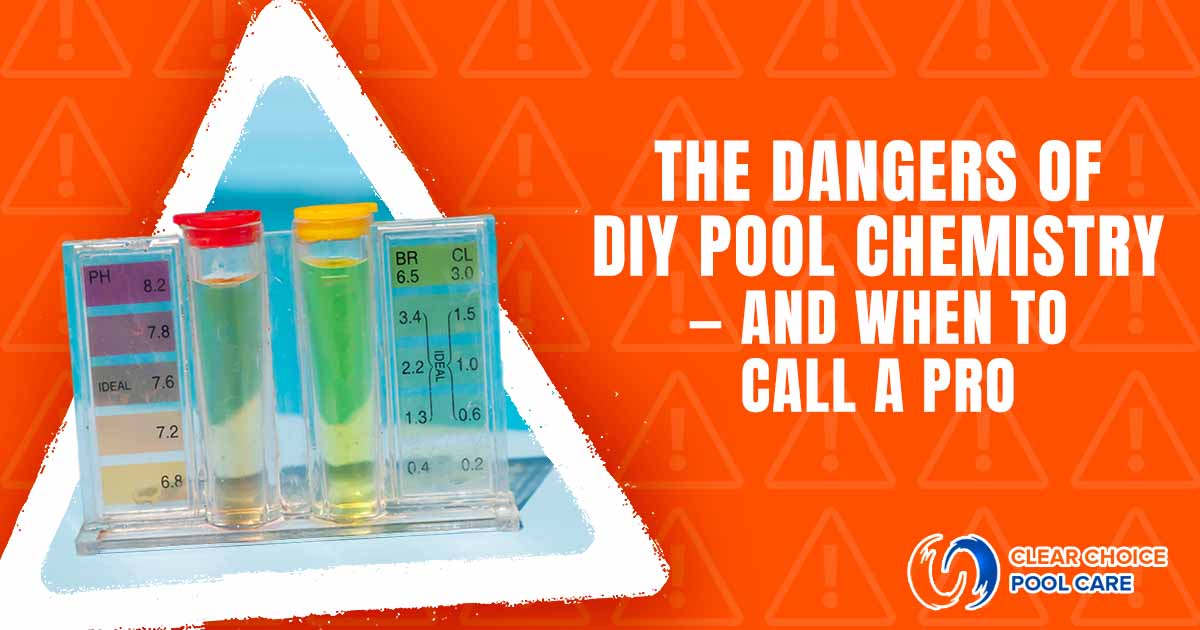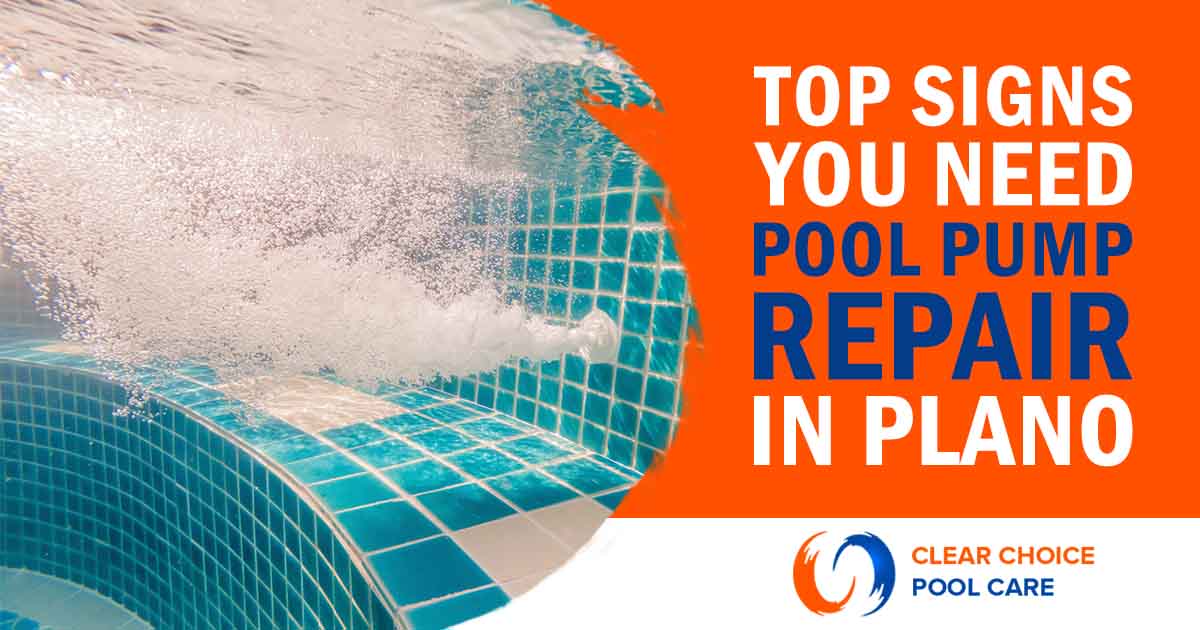Dallas homeowners must prepare their pools before summer to ensure clean, safe, and enjoyable swimming conditions. The high temperatures and frequent pool use during the season can lead to chemical imbalances, algae growth, and filtration issues. Regular maintenance helps prevent costly repairs and extends the lifespan of pool equipment. This guide covers essential pool cleaning tips for Dallas homeowners, focusing on weekly maintenance, water chemistry, and seasonal upkeep.
Why Pool Maintenance Is Essential for Dallas Homeowners
Proper pool maintenance is necessary to keep water clear, balanced, and contaminant-free. Dallas’ hot climate accelerates evaporation, increases chemical demand, and promotes algae growth. Homeowners who follow a routine cleaning schedule can avoid common problems such as cloudy water, clogged filters, and equipment damage.
The Impact of Dallas’ Hot Climate on Pool Upkeep
High temperatures cause faster chlorine depletion, requiring frequent chemical adjustments. Evaporation increases water loss, leading to imbalances in pH and alkalinity. Heavy sunlight promotes algae growth if chlorine levels are not adequately maintained.
Common Pool Issues Caused by Heat and Heavy Usage
Cloudy Water – Caused by debris, improper filtration, or unbalanced chemicals. Algae Growth – More common in pools with poor circulation and low sanitizer levels. Scaling and Staining – Due to high calcium levels in Dallas’ hard water supply. Filter Clogs – Caused by increased dirt, sunscreen, and organic matter from frequent pool use. A well-maintained pool ensures homeowners and their guests a safe and enjoyable experience. The following sections provide actionable pool cleaning tips for Dallas homeowners to keep their pools in top condition.
Pool Cleaning Tips for Dallas Homeowners: Weekly Maintenance Checklist
Regular pool maintenance is essential to keep the water clean, balanced, and safe for swimming. A consistent weekly cleaning routine helps prevent algae growth, filter clogs, and chemical imbalances. Following this checklist ensures that Dallas homeowners maintain their pools efficiently.
Skimming and Debris Removal
Use a skimmer net daily to remove leaves, insects, and floating debris. Clean the pool surface to prevent debris from sinking and affecting water quality. Check and empty the skimmer baskets to maintain proper water circulation.
Brushing Pool Walls and Tiles
Brush pool walls, steps, and waterline tiles at least once a week to prevent algae buildup. Use a stiff-bristled brush for concrete pools and a softer brush for vinyl or fiberglass surfaces. Pay extra attention to shaded areas where algae tend to develop faster.
Vacuuming the Pool Floor
Use a manual or automatic pool vacuum to remove dirt, sand, and debris from the pool floor. Vacuuming prevents sediment buildup that can cloud water and clog filters. Focus on corners and steps, where debris often accumulates.
Checking and Emptying Skimmer Baskets
Inspect skimmer and pump baskets weekly to ensure proper water flow. Remove leaves and debris to prevent clogging and reduce strain on the pool pump. Replace damaged skimmer baskets to maintain effective filtration. A consistent cleaning routine helps Dallas homeowners keep their pools in optimal condition. The following section covers proper water chemistry management to ensure a safe and balanced swimming environment.
Maintaining Proper Water Chemistry for a Safe Swimming Experience
Balancing pool chemicals is essential for maintaining clear water and preventing the growth of bacteria and algae. Dallas homeowners should regularly test their pool water and adjust chemical levels to ensure safe swimming conditions.
Testing and Balancing Pool Chemicals
Use a pool test kit or test strips at least twice weekly to monitor pH, chlorine, and alkalinity levels. Ideal chemical levels for residential pools: pH: 7.2 – 7.6 Chlorine: 1 – 3 ppm Alkalinity: 80 – 120 ppm Calcium Hardness: 200 – 400 ppm Cyanuric Acid (Stabilizer): 30 – 50 ppm Adjust chemicals gradually to avoid drastic changes in water balance.
Chlorination Best Practices for Dallas Pools
Use stabilized chlorine to prevent rapid depletion due to sunlight. Consider saltwater chlorination for lower maintenance and softer water. Shock the pool weekly or after heavy use to eliminate contaminants. Avoid over-chlorination, which can cause skin irritation and equipment damage.
Preventing Algae Growth with Proper Chemical Use
Maintain consistent chlorine levels to prevent algae blooms. Brush and vacuum the pool regularly to remove algae spores. Use an algaecide as a preventive measure, especially during peak summer months. Ensure proper filtration and circulation to keep water moving and reduce algae buildup. By balancing pool chemistry, Dallas homeowners can prevent common water issues and maintain a safe swimming environment. The following section explains how to optimize pool filtration and circulation for cleaner water.
Optimizing Pool Filtration and Circulation
A well-functioning filtration and circulation system is essential for keeping pool water clean and free from contaminants. Proper maintenance of pool pumps and filters ensures efficient water movement, which helps prevent algae growth and debris buildup.
How Often to Run Your Pool Pump
Run the pool pump for 8 to 12 hours daily to ensure proper water circulation. Increase pump run time during hot summer to prevent stagnation and algae growth. Use a variable-speed pump for energy efficiency and improved filtration. Check the pump strainer basket weekly and remove debris to maintain optimal performance.
Cleaning and Maintaining Pool Filters
Pool filters remove dirt, debris, and small particles from the water, requiring regular cleaning based on the filtration system type. For sand filters, backwash every 1–2 weeks to remove trapped debris and replace the sand every 3–5 years for optimal performance. With cartridge filters, rinse with a hose every 2–4 weeks, soak in a filter cleaner every 3–6 months, and replace cartridges every 1–2 years as needed. For DE (Diatomaceous Earth) filters, backwash and add fresh DE powder every 4–6 weeks and perform a full cleaning twice a year by disassembling and washing the grids. Proper filtration and circulation ensure clear and safe pool water. The next section covers seasonal pool cleaning tips to maintain pools year-round.
Seasonal Pool Cleaning Tips for Dallas Homeowners
Dallas homeowners should adjust their pool maintenance routine throughout the year to account for seasonal changes in temperature, weather conditions, and pool usage. Regular seasonal care helps prevent costly repairs and ensures the pool remains in excellent condition.
Spring Preparation: Getting Your Pool Ready for Summer
If used, remove and clean the pool cover to prevent debris from entering the water. Inspect and clean pool equipment, including the pump, filter, and skimmer baskets. Test and balance water chemistry after winter stagnation. Shock the pool to eliminate bacteria and algae spores before the swimming season begins. Ensure all safety equipment, such as ladders and handrails, is secure and functional.
Mid-Summer Pool Care: Handling Heavy Use and Heat
Increase filtration time to 10–12 hours daily to accommodate higher temperatures. Test and adjust chemical levels more frequently to maintain proper water balance. Skim and vacuum the pool daily to remove sunscreen, sweat, and organic debris. Shock the pool weekly to manage heavy swimmer loads and prevent cloudy water. Monitor water levels and top off as needed due to increased evaporation.
Fall & Winter Maintenance: Keeping Your Pool in Shape Year-Round
Reduce pump run time to 4–6 hours daily as temperatures drop. Remove fallen leaves and debris to prevent staining and clogged filters. Adjust chemical levels to prevent algae growth and scale buildup. Consider covering the pool to reduce maintenance during colder months. If closing the pool for winter, lower the water level, clean the equipment, and add winterizing chemicals. Following seasonal maintenance routines helps Dallas homeowners keep their pools in optimal condition all year. The following section outlines when to seek professional pool cleaning services for more extensive maintenance and repairs.
When to Call a Professional Pool Cleaning Service in Dallas
While homeowners can manage routine pool maintenance, some tasks require professional expertise. Hiring a pool cleaning service ensures thorough inspections, proper chemical balancing, and efficient equipment repairs.
Signs That DIY Maintenance Isn’t Enough
Persistent cloudy or green water despite chemical adjustments. Algae growth reappears even after brushing and shocking the pool. Unusual odors, which may indicate bacteria buildup or poor water circulation. Sudden drops in water level, signaling potential leaks. Pool equipment making loud noises or failing to operate efficiently.
Common Pool Repairs That Require Expert Assistance
Pump and Motor Issues – Strange noises, reduced water flow, or complete pump failure. Filter Malfunctions – Inefficient filtration causes debris buildup in the water. Plumbing Leaks – Identifying and fixing underground or visible leaks. Tile and Surface Repairs – Cracks, scaling, or worn-out pool surfaces need resurfacing. Chlorination System Problems – Malfunctioning saltwater generators or chlorine feeders. A professional pool cleaning service can diagnose and resolve these issues, ensuring the pool remains in top condition. The following section explains how Clear Choice Pool Care can help maintain and repair pools for Dallas homeowners.
Schedule Expert Pool Cleaning Services Today
Clear Choice Pool Care offers professional pool cleaning, maintenance, and repair in Dallas. Certified technicians ensure balanced water, efficient filtration, and reliable equipment. Schedule a service today at 469-451-0222 to keep your pool clean and safe





